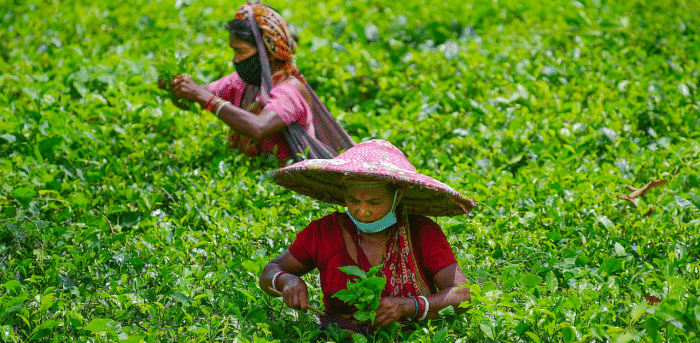
As if the production loss caused by last year's Covid-19 lockdown to the beleagured Assam tea industry was not enough, the deficit rainfall this year so far has resulted in 40% crop loss, leaving both the planters and industry players worried.
North Eastern Tea Association (NETA) on Wednesday said the tea growing areas in Assam (from Golaghat to Tinsukia) already witnessed an average rainfall deficit of 45 per cent from January to May compared to the same period last year. "Nowadays rainfall is highly localised and there is difference in quantum of rainfall within few kilometres of distance. As per our study, the crop deficit from January to May this year will be about 60 million kg compared to the production during the same period in 2019," NETA adviser, Bidyananda Barkakoty said.
The study did not compare crop figures with production in 2020 as activities in the state's tea estate remained severely affected by the Covid-19 lockdown. The NETA had earlier said the lockdown and the Covid-19 related restrictions last year had led to 80 million kg crop loss, resulting a revenue loss of an estimated Rs 1,128 crore. According to Tea Board, the crop loss between January and May last year was 78 million kg.
With over 850 big tea estates and thousands of small tea growers, Assam contributes over 50 per cent of the country's tea production. But the Covid-19 pandemic and the deficit rainfall has crippled the industry, which was already struggling with stagnant prices and high cost of production since 2014.
"Last year the tea industry suffered due to the lockdown and this year, severe deficit of rainfall in the early part of the season has caused havoc in tea production," said Sunil Jallan, Chairman of NETA.
Mrigendra Jalan, adviser of Bharatiya Cha Parishad said extreme weather fluctuations both in terms of temperature and rainfall impacted the growth of tea leaves severely. "Temperature drop from 34 to 19 degrees centigrade coupled with less sunshine for the last one week is playing havoc with the crop," he said.
“We do not remember facing such a prolonged drought in the last 30 years. Apart from the huge loss of crop due to rainfall deficit, the drought at the very beginning of the tea season has also delayed the application of fertilisers by around two months. This will only add to the loss of crop during the ensuing peak harvesting months,” said Manoj Jallan, former Chairman of NETA.